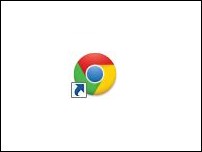 [German]Google is probably reacting to the legal situation within the European Union. There is the Digital Service Act (DSA) and the Digital Markets Act (DMA). These require gatekeepers within the European Union to allow users to choose which services they use. Google will therefore display a search engine selection on the desktop in its Chrome browser in 2024.
[German]Google is probably reacting to the legal situation within the European Union. There is the Digital Service Act (DSA) and the Digital Markets Act (DMA). These require gatekeepers within the European Union to allow users to choose which services they use. Google will therefore display a search engine selection on the desktop in its Chrome browser in 2024.
European Digital Markets Act
In summer 2023, EU Commissioner Terry Breton named the first seven companies to be classified as "gatekeepers" for the EU Digital Markets Act (DMA) (I've covered it only within my German blog psot EU benennt sieben Unternehmen als "Gatekeeper" für EU Digital Markets Act). These companies will then have six months to comply with the DMA rules. The rules impose certain obligations on the companies (e.g. prohibition of lock-in into their own eco-system, or prohibition of specifications as to which apps users must use). Details can be found on this page (and here) of the European Union.
In a 3nd step, 22 platforms were then designated as gatekeepers by the EU Commission (see my German blog post EU-Kommission benennt 22 Plattformen als Gatekeeper unter dem Digital Markets Act). One of the explicitly named platforms is the Google Chrome browser.
The search engine selection in Chrome
These EU rules also influence how Google Chrome has to react to certain situations. The browser is not pre-installed on the Windows and macOS desktop (Android has long had a selection screen for the browser and search engine, see Android: Google offers European users the browser choice). However, the default search engine in the Chrome browser is Google.
There are now indications of a change for 2024. The first indications came to my attention at the beginning of December 2023 – German Winfuture reported on the matter in this article. From the beginning of 2024, Google Chrome users will receive a prompt to select a search engine when they start the browser on the Windows or macOS desktop for the first time. This one-time prompt will allow users to select a search engine from a drop-down list.
Martin Brinkmann also picked up on this in an article on ghacks.net (see also the tweet above). Currently, this feature is probably already included in the Canary builds of Chrome, as a German site noticed here. A pop-up informs the user that the default search engine must be set due to a law in their region.
This is the search engine that the Chrome browser uses by default when searching via the address field. The user is then offered a selection of "popular" search engine providers to choose from in random order. The pop-up indicates that a function may not be available if the selected search engine does not support it.
However, this selection screen for the default search engine in Chrome will only be rolled out in countries in the European Union and the European Economic Area (EEA), which includes Iceland, Liechtenstein and Norway in addition to the EU member states (Switzerland is not a member). It is not yet clear exactly when the rollout will take place. Users can change the search engine at any time later via the browser's settings page.




